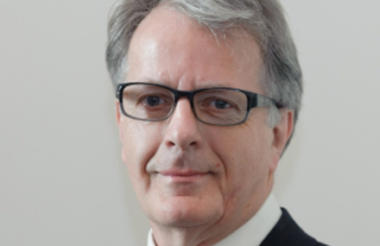Charitable foundations must show greater trust in the charities they give grants to, the outgoing chief executive of the Association of Charitable Foundations David Emerson said yesterday.
Emerson, who will stand down later this year, was opening the ACF’s annual conference yesterday, and said that foundations must be prepared to accept less control over their money. He told delegates that: “There has never been a more important time to address the issue of trust.”
In the current social and political climate, he said: “Now is the time to be versatile, to be agile, to bend often rather than risking a break. We must continue to think not only about what we fund, but also how we fund.
“This means we must trust.”
He said that while trust should not be blind “we are at our best when we are prepared to give up control, and in doing so, set those we fund free to adapt and innovate in the face of rapid change”.
He added that while funders should continue to collect data from grantees to make better decisions they should “resist doing so at the expense of one our greatest assets; the ability to trust and the liberty to put people at the heart of all that we do”.
Healing divisions
He said that in the wake of the vote to leave the European Union, which has exposed “distrust between communities, between generations, between nations, between supra-national bodies and the institutions and treaties that come with them” it is more important funders had to consider the wider impact of their activity.
He said: “All of us must engage with what it has revealed about our society and how exactly those revelations may shape our future.
“When making a particular grant, programme or social investment, how aware are we of its potential inadvertently to encourage division?
“Have we now a greater responsibility to consider how our support can help empower communities, build democratic engagement, or forge meaningful links between the private, public and voluntary sectors?”
He said funders should use their place in society to heal divisions.
“Funders can make a difference, by leveraging their role as facilitators, convenors and communicators to begin to build a genuinely collaborative discourse around social change,” he said.
Trust is changing
He also told the audience that the way trust is built is changing.
“More and more we live in a society building its networks of trust more selectively, drawing on the lived experience of others and sharing it openly and at speed,” he said. “After all, how many of us filter our news via social media, or value online reviews over corporate advertising?
“Transparency is an increasing expectation and we operate within a sector that relies on its integrity and reputation to justify the special privileges it has in law.”
He said foundations have a role in “maintaining public trust in what charities do” and should “be aware that while trust makes us resilient, it also makes us vulnerable”.
Emerson cautioned against overreacting to public opinion polls.
“Striking a balance is key”, he said. “For the long-term health of the sector, trustees must be confident in maintaining ultimate accountability first and foremost to their charitable objectives, and not be overly inhibited by the climate of the day or perceived fluctuations in public opinion.”
“We must be confident in our ability to back unpopular, controversial or neglected causes, those vital organisations and individuals who would otherwise struggle to find the support they need.”
Related articles












